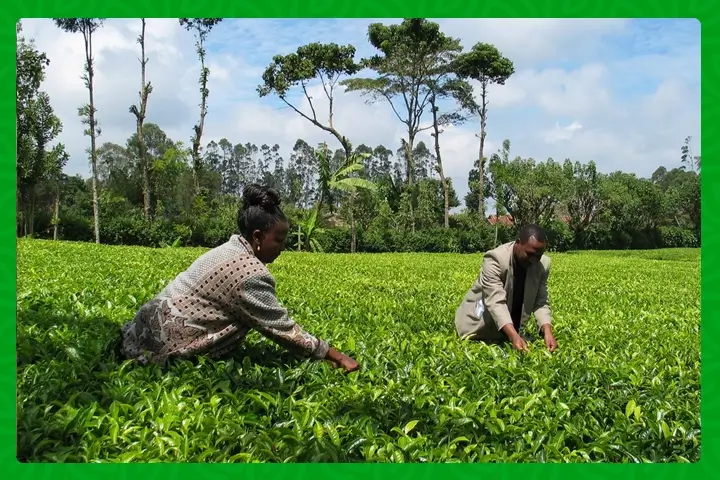
Kenya must develop a tea brand that will fetch the best prices for farmers, President William Ruto has said. The President emphasized the need for Kenya’s tea to be branded to increase its visibility in the global market, highlighting the importance of labeling it with a mark of origin. In a competitive business environment, brand sustainability is crucial for securing better prices and supporting the country’s economy.
Transforming the Tea Industry: A Call to Action
Speaking at State House Nairobi during a meeting with Kenya Tea Development Agency (KTDA) factory chairmen and directors, President Ruto expressed dissatisfaction with the current state of affairs. He noted that Kenya, despite being the largest tea producer in the world, lacks a distinct Kenyan tea brand. This absence results in lower prices compared to countries with smaller production outputs but stronger branding.
“We are the largest tea producer in the world, yet we don’t have a Kenyan tea brand and, therefore, our product gets lower prices than countries that produce less than we do,” President Ruto said. His call to action is clear: Kenya must shift from selling unprocessed tea to exporting value-added and branded tea products.
Strategic Initiatives for Value Addition
President Ruto urged the leaders of tea factories to set up common user facilities, facilitating the processing and branding of tea. He set an ambitious target: within three to five years, 60 percent of Kenya’s tea exports should be processed and branded. This goal aligns with last year’s removal of taxes on tea packaging materials, making it feasible for tea factories to expand their facilities and add value to their products.
“We cannot continue exporting our tea in sacks. In three years, we must export 60 percent of value-added and branded tea. KTDA and the Tea Board of Kenya must work together in branding our tea,” President Ruto stated.
Supporting Infrastructure and Regulatory Changes
To support these initiatives, President Ruto promised to operationalize the Tea Tribunal within three months. This tribunal will address disputes within the tea sector, providing a structured platform for resolving issues and enhancing the overall efficiency of the industry.
Additionally, he agreed with the leaders that tea factories with hydro-power stations should be compensated for the power they supply to the Kenya Power and Lighting Company. This move aims to ensure fair compensation and support the sustainability of tea factories.
Environmental and Economic Sustainability
President Ruto also highlighted the integration of environmental initiatives with economic goals. The Kenya Forest Service and KTDA will sign an agreement enabling tea factories to participate in the country’s 15 billion tree-planting program. This initiative will allow tea factories to harvest trees for wood fuel, contributing to both environmental conservation and the energy needs of the factories.
Moreover, President Ruto directed the KTDA to reduce the management fee charged to farmers from 2.5 percent to 1.5 percent, easing the financial burden on farmers and ensuring they receive a fairer share of the profits.
Ensuring Democratic Governance
In his address, President Ruto called for free and fair elections within the KTDA, emphasizing that the government has no preferred candidates. This move aims to ensure transparency and democracy within the organization, empowering stakeholders to choose leaders who will best represent their interests.
President William Ruto’s vision for Kenya’s tea industry is transformative. By developing a strong Kenyan tea brand, increasing value addition, and implementing strategic infrastructure and regulatory changes, Kenya can secure better prices for its farmers and enhance its position in the global market. The collaboration between KTDA, the Tea Board of Kenya, and government agencies will be crucial in achieving these goals. As Kenya looks to the future, the branding and value addition of its tea stand as pivotal steps toward economic growth and sustainability.
Stay updated with the latest farming tips and agriculture industry news from Africa by subscribing to our newsletter. Don’t miss out on valuable insights and updates. Follow us on Twitter, LinkedIn, and Facebook to join our farming community and stay connected with us.



















